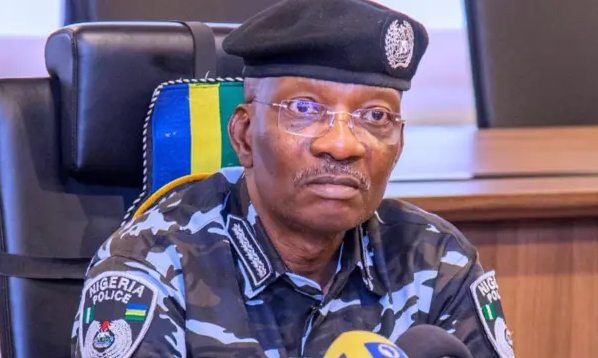
The Inspector General of Police, Kayode Egbetokun, on Thursday, said that 11,566 police personnel have been recalled following the presidential directive to withdraw police officers from VIP protection.
Egbetokun, who disclosed this during the strategic officers conference, also said that the redeployment of the affected personnel to underserved communities had since commenced.
He explained that the recent directive by President Bola Tinubu was a strategic and deliberate realignment of our national policing priorities.
According to him, the policy decision is rooted not in sentiment, but in necessity, reflecting the current security demands of Nigeria.
The IGP also said that it reinforces the fundamental purpose for which the Force exists — the protection of our people, the defence of communities, and the safeguarding of public order.
“It is important to emphasise that this action is a patriotic, forward-looking, and operationally prudent measure designed to strengthen our manpower capacity for critical frontline policing functions.
“With the security environment placing increasing pressure on unprotected populations and vulnerable communities, and in this regard, we wish to assure members of the public that this withdrawal will enable the Force to expand deployment into areas where policing input has the most meaningful public safety outcomes.
“These include, but are not limited to, large-scale population protection operations, rural and township security fortification, intensified police visibility and patrol spread, investigative response expansion, and tactical containment of emerging violent threats.
“Simply put, this policy ensures that more officers are repositioned from personalised security duties to collective public protection responsibilities, where their presence and operational impact are most urgently required,” he stated.
While addressing the senior police officers at the conference, the IGP said that while the Force moves decisively to implement the directive, it must also act responsibly to manage its execution.
He noted that the police were mindful of the risk of misinterpretation, misinformation, and exploitation by undesirable elements who might seek to capitalise on the situation for personal or political advantage, or attempt to create narratives that undermined public confidence.
“To guard against this, the Force will release detailed implementation modalities in due course, outlining clear processes, timelines, safeguards, and accountability measures.
“These modalities will be communicated internally first, and subsequently to the public through the appropriate professional channels, in a structured and controlled manner.
“This phased approach is necessary to prevent opportunistic actors from weaponising ambiguity, spreading disinformation, or impersonating authority in ways that could distort or compromise the intent of this initiative.
“We are committed to ensuring that this process strengthens policing, preserves institutional integrity, and eliminates any window for actors who operate outside legitimate security frameworks to mislead or cash in on the transition,” Egbetokun added.
President Bola Tinubu on Wednesday declared a nationwide security emergency and ordered additional recruitment into the Nigerian Armed Forces and the police force, amid rising attacks and abductions by gunmen and suspected terrorists.
Tinubu said that the officers being withdrawn from VIP guard duties should undergo “crash training” to debrief them and deliver more efficient police services when deployed to security-challenged areas of the country.
The President authorised the security agency to use various National Youth Service Corps (NYSC) camps as training depots for new recruits.